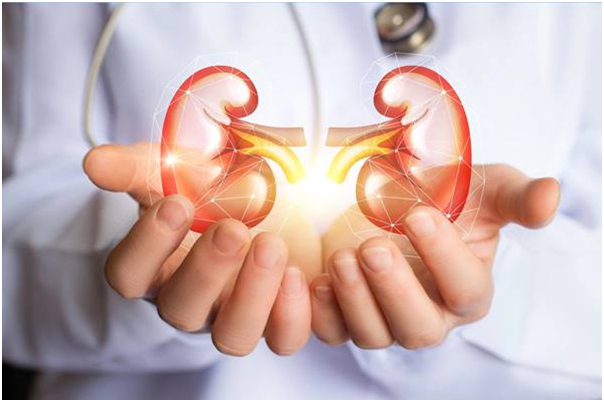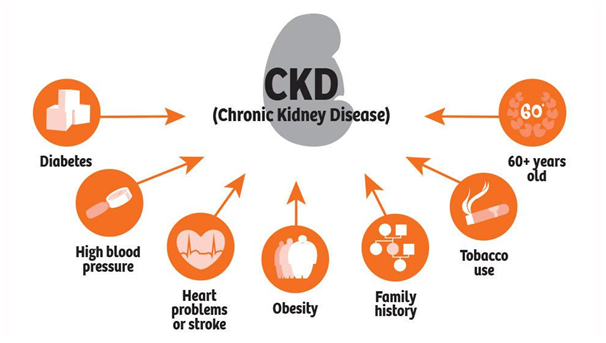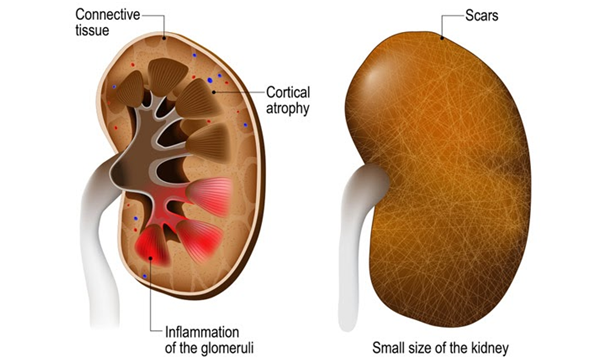What is Chronic Kidney Disease (CKD)?

CKD is a condition in which the kidneys are damaged and cannot filter blood as well as they should. Because of this, excess fluid and waste from blood remain in the body and may cause other health problems, such as heart disease and stroke.
Some other health consequences of CKD include:
- Anemia or low number of red blood cells
- Increased occurrence of infections
- Low calcium levels, high potassium levels, and high phosphorus levels in the blood
- Loss of appetite or eating less
- Depression or lower quality of life
CKD has varying levels of seriousness. It usually gets worse over time though treatment has been shown to slow progression. If left untreated, CKD can progress to kidney failure and early cardiovascular disease. When the kidneys stop working, dialysis or kidney transplant is needed for survival. Kidney failure treated with dialysis or kidney transplant is called end-stage renal disease (ESRD).

Risk Factors

Individuals with the following conditions are at high risk of CKD
- Diabetes
- High blood pressure
- Heart disease
- Family history of CKD
- Obesity
Symptoms
- weight loss and poor appetite
- swollen ankles, feet or hands – as a result of water retention (oedema)
- shortness of breath
- tiredness
- blood in your pee (urine)
- an increased need to pee – particularly at night
- difficulty sleeping (insomnia)
- itchy skin
- muscle cramps
- feeling sick
- headaches
- erectile dysfunction in men
Treatment & Management
The main treatments include:
- Lifestyle changes like exercise, healthy diet and weight loss to help you stay as healthy as possible
- Medications to repair the Kidney Functions and control Serum Creatinine level, Urea & Uric Acid levels and management of associated problems, such as high blood pressure and high cholesterol
- Dialysis treatment to replicate some of the kidney’s functions, which may be necessary in advanced (stage 5) CKD
- Kidney transplant may also be necessary in advanced (stage 5) of CKD.

Source: Centers for Disease control & Prevention, US & NHS, UK.